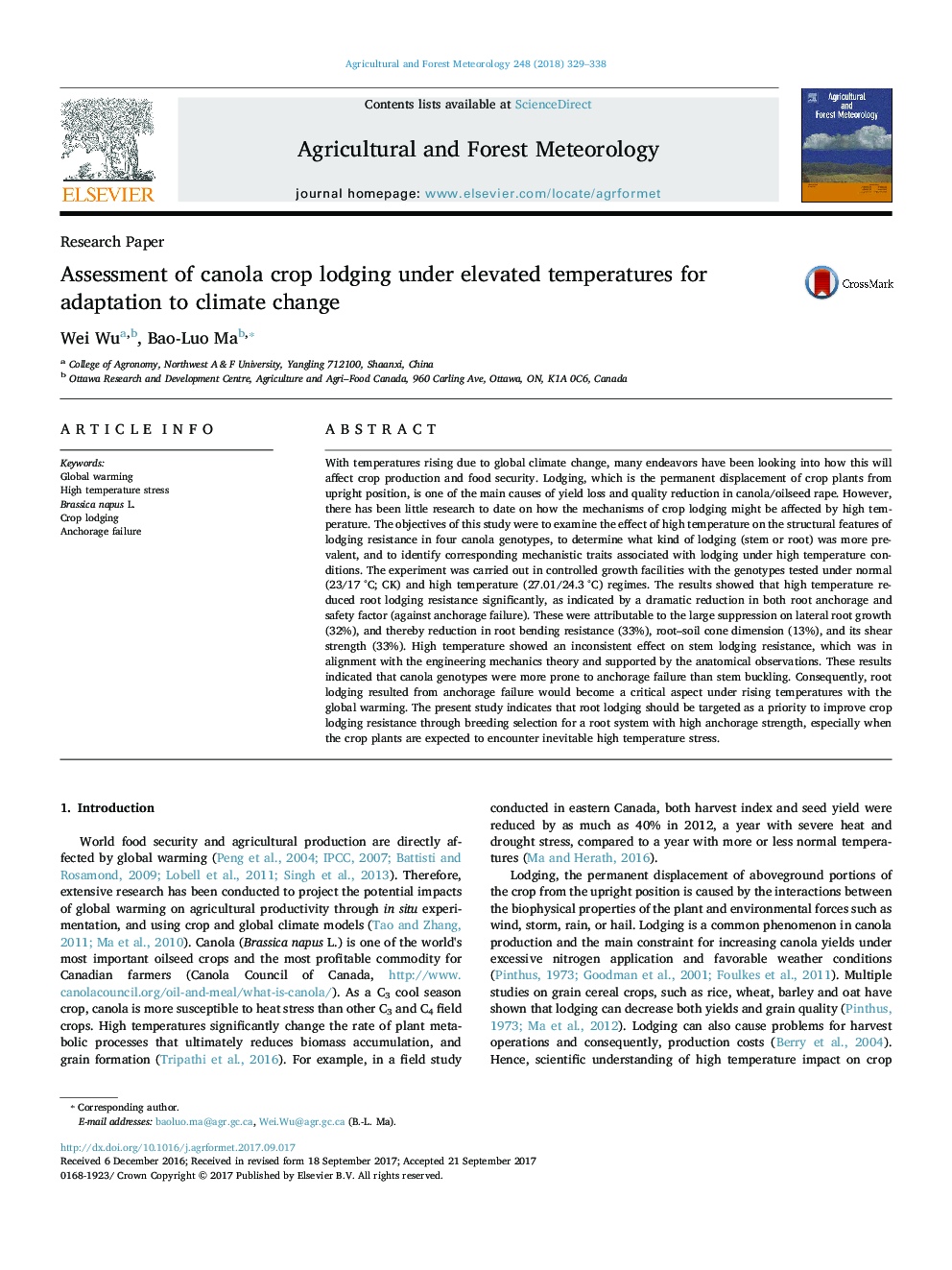| Article ID | Journal | Published Year | Pages | File Type |
|---|---|---|---|---|
| 4758886 | Agricultural and Forest Meteorology | 2018 | 10 Pages |
â¢Canola plant was more prone to anchorage failure than stem buckling.â¢Anchorage failure would become further prevalent under rising temperature.â¢High temperature alters anatomical parameters but does not influence stem lodging.â¢Important parameters are identified to improved lodging resistance.
With temperatures rising due to global climate change, many endeavors have been looking into how this will affect crop production and food security. Lodging, which is the permanent displacement of crop plants from upright position, is one of the main causes of yield loss and quality reduction in canola/oilseed rape. However, there has been little research to date on how the mechanisms of crop lodging might be affected by high temperature. The objectives of this study were to examine the effect of high temperature on the structural features of lodging resistance in four canola genotypes, to determine what kind of lodging (stem or root) was more prevalent, and to identify corresponding mechanistic traits associated with lodging under high temperature conditions. The experiment was carried out in controlled growth facilities with the genotypes tested under normal (23/17 °C; CK) and high temperature (27.01/24.3 °C) regimes. The results showed that high temperature reduced root lodging resistance significantly, as indicated by a dramatic reduction in both root anchorage and safety factor (against anchorage failure). These were attributable to the large suppression on lateral root growth (32%), and thereby reduction in root bending resistance (33%), root-soil cone dimension (13%), and its shear strength (33%). High temperature showed an inconsistent effect on stem lodging resistance, which was in alignment with the engineering mechanics theory and supported by the anatomical observations. These results indicated that canola genotypes were more prone to anchorage failure than stem buckling. Consequently, root lodging resulted from anchorage failure would become a critical aspect under rising temperatures with the global warming. The present study indicates that root lodging should be targeted as a priority to improve crop lodging resistance through breeding selection for a root system with high anchorage strength, especially when the crop plants are expected to encounter inevitable high temperature stress.
